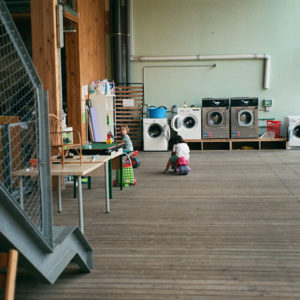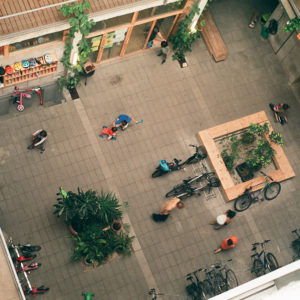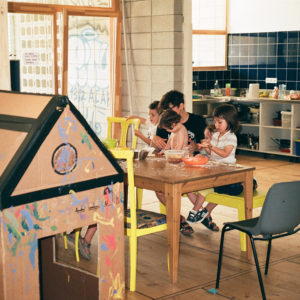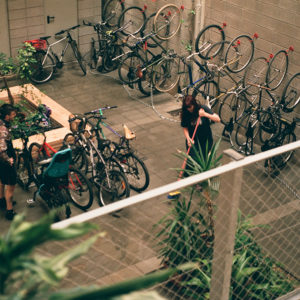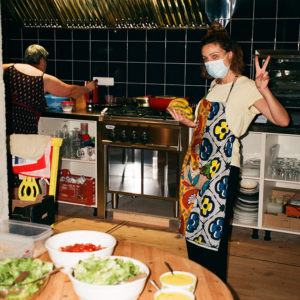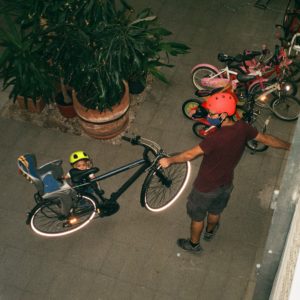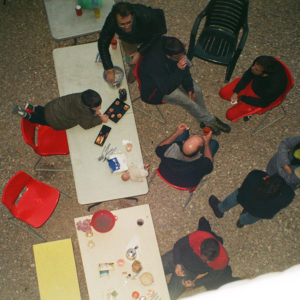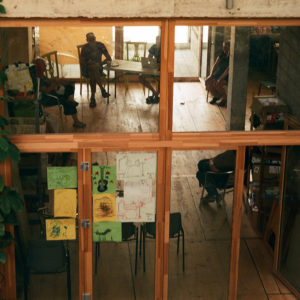
One of the main values of La Borda and of the cooperative housing in grant of use in general is the community dimension also in the phase of conviviality, one more of the readings of our ‘we build housing to build community’.
This conviviality or community life takes many forms; from conversations in the corridors, courtyard or between balconies, to assemblies or committee meetings. In the activation of mutual support processes in case of difficulties for the payment of the fee, or by having dinner together in the common kitchen dining room. Also by washing clothes in the laundry room, keeping the building polished or hosting guests in the guest room. The latter ones, which we could call conviviality practices and services, materialize those day-to-day needs that, due to living in a building with common spaces and a community pretension, are resolved differently than we are usually used to.
For example, to wash clothes, we have an app to book specific time slots for the two industrial washing machines and a non-bookable domestic one that we all share, with one-hour shifts. For the two common guest rooms we have a booking calendar that also serves for the rest of the bookable spaces, the kitchen & dining room and the roofs. We make joint meals during celebrations in the kitchen & dining room and also weekly dinners for all those who have signed up, organizing the tasks of shopping, cooking and cleaning in groups and shifts, and thus socialize the care related activities around food and making community along. In the kitchen & dining room, for example, we also host day care for children who still can’t / don’t want to go to the assemblies. We also have larger storage spaces than those inside the house on the corridors and an online list where we share the objects we have and want to share, which complements the informal dynamics of asking close neighbors, writing on the blackboard at the entrance, etc. We also clean the common areas in a self-organized way with an annual calendar distributed per person, not per cohabitation unit, and we chat about cleaning days when we find it necessary, usually on weekends and gathering for a common lunch too.
Beyond covering the functions of everyday life with practices promoting conviviality, good neighborliness or a sense of community, also as we mentioned earlier we have mutual support practices, such as a common pot for emergencies. It is automatically fed with monthly instalments as part of the fee and is activated, for example, as happened during the pandemic if someone is unable to meet their monthly fee. We have also provided spaces for emotional care and conflict prevention and resolution. These and other aspects that will surely evolve give shape to community life in La Borda.
Participatory design
The self-promotion and subsequent collective management of La Borda meant that the participation of future resident partners in the process of designing the the convivial practices and services (research, design detailing, implementation and use) was the most important and differential variable of the project, generating an opportunity for know each other and the project among all the specific needs in terms of conviviality. In these phases the participation was articulated through the different work commissions and the general assembly.
As for the community life, it was articulated around the conviviality commission and had a technical support team that stimulated the research of needs and references, the definition of scenarios on possible practices and conviviality services, the model as a whole, and its implementation.
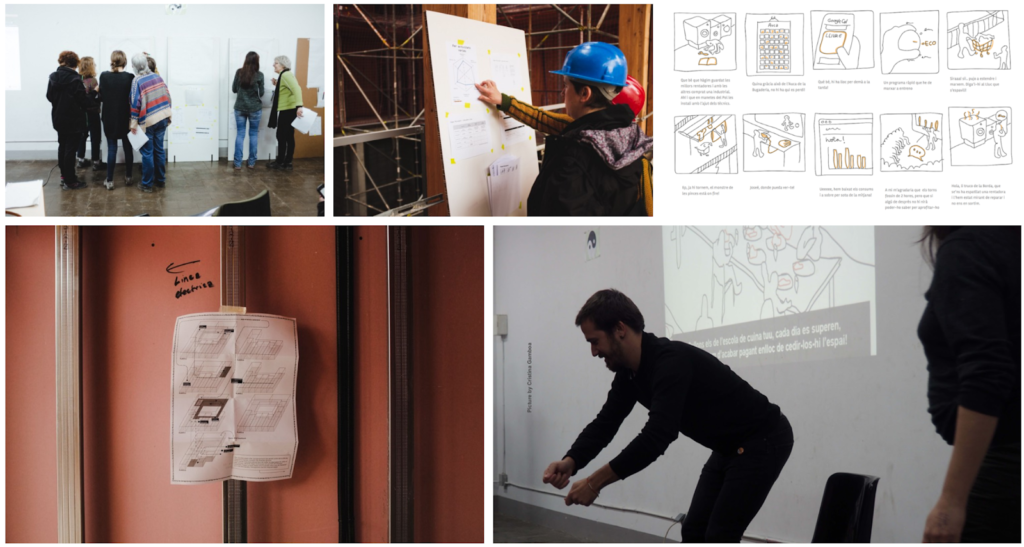
Shared services and common spaces
• Laundry
• Kitchen and living room
• Guests flat
• Multipurpose room
• Health and care (in the future)
• Bicycle parking
• Storage
• Shared objects and tool
• Solar panels
